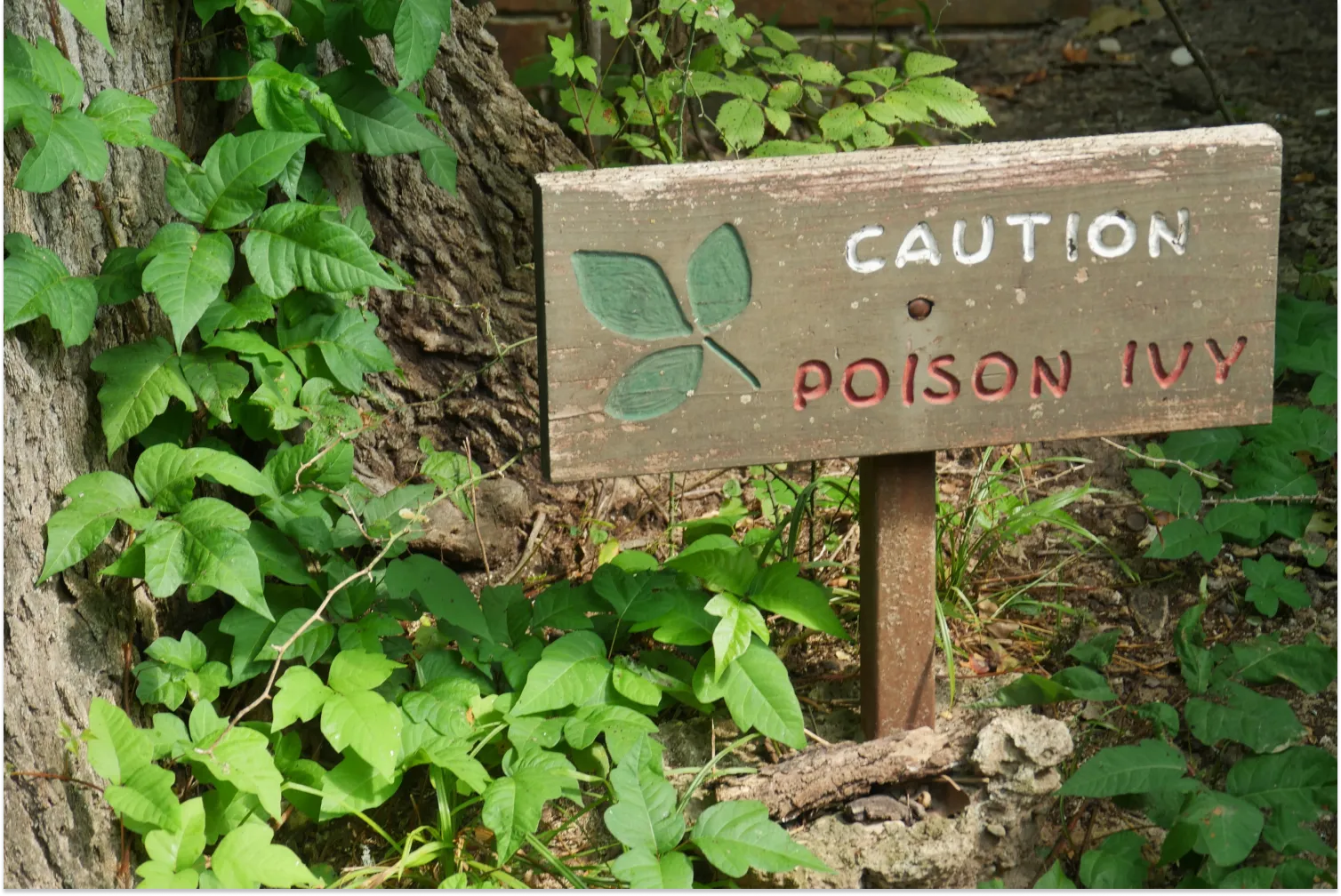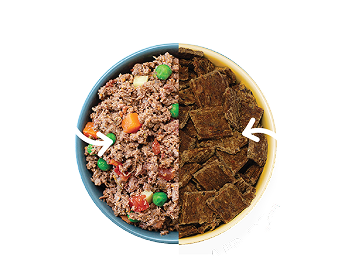
Can Dogs Get Poison Ivy? How To Treat Your Pup
We know how fun it is to hike and play with your dog. But with nature’s playground comes a host of plant pals — some less friendly than others.
If you’ve ever experienced the itch of poison ivy, you might find yourself wondering if your dog can suffer the same fate. At A Pup Above, we’ve always believed understanding our dog's health and surroundings is a sign of love and care.
So let's delve into this leafy concern and see what it means for our pets.
Can Dogs Get Poison Ivy?
If your dug runs through the woods after a squirrel, and emerges with an itch, it might just be poison ivy. These plants, often found in forests, fields, and even some backyards, release an oil called urushiol when touched, which causes that infamous itch.
For dogs, the reaction isn’t too different. Signs and symptoms of poison ivy exposure in dogs can include:
- Redness or swelling of the skin
- Itchy patches or blisters
- Constant licking or chewing at a particular spot
As much as dogs love to explore, it's crucial for pet parents to be aware of these signs. After all, ensuring our dog's well-being isn't just about serving up delicious and nutritious meals, it's about understanding every facet of their health.
Why Are Dogs Less Susceptible but Not Immune?
Those blessed with a fur coat have a natural layer of protection. This thick barrier means that areas covered in fur are less likely to come into direct contact with the harmful oils of poison ivy. However, this doesn’t grant our canine companions complete immunity.
Certain areas on a dog's body are more vulnerable than others. The underbelly, where the fur might be thinner, or areas around the nose and mouth, can be more susceptible. Considering our dogs' natural instincts to sniff out intriguing scents, these unprotected areas might just come into contact with the troublesome plant.
So, while our furry friends have some natural defenses, it’s important to remember they aren't completely invincible. Just as we're meticulous about their diet and ensuring they get the best flavors and nutrients, we should be equally vigilant about their outdoor encounters.
What Immediate Steps Should You Take if You Suspect Exposure?
The world of dogs is ruled by scents and tastes, and sometimes, their noses lead them to less-than-friendly encounters like poison ivy. If you ever find your pup itching after a hike or park date, it's essential to act swiftly.
- Gently Wash the Exposed Area: Carefully clean the affected skin using lukewarm water and a mild dog-friendly shampoo. Ensure you wear gloves to avoid transferring any oils to your skin.
- Avoid Human Treatments: It might be tempting to use human creams or ointments, but always consult your vet before applying any. What's safe for us isn't always safe for our dogs.
- Keep Them Hydrated: Offer your dog a refreshing bowl of water, perhaps enhanced with a splash of nutritious bone broth, to keep them calm and hydrated.
- Positive Reinforcement: Remember, your dog might be confused and itchy. Offer treats, gentle words, and cuddles to keep them calm and reassured during the cleaning process.
Treating Symptoms and Long-Term Care
Sometimes, symptoms persist despite our best efforts. It's here that a blend of informed care and tender love comes to the rescue.
- Consult Your Veterinarian: At the first sign of severe discomfort, redness, or blisters, take your dog to the vet. It's always better to be on the safer side when it comes to our pets' health.
- Safe Over-the-Counter Treatments: If your vet recommends any over-the-counter treatments, ensure you follow dosage and application guidelines meticulously.
- Holistic Approaches: Some pet parents swear by holistic remedies like oatmeal baths. While these can be soothing, always ensure they don't conflict with any treatments your vet recommends.
- Dietary Role in Healing: Good food is healing, both for the soul and the skin. Consider feeding your dog gently cooked, nutrient-rich foods that support their overall health. A Pup Above's sous-vide offerings, for instance, are packed with flavors and nutrients that can aid in recovery.
Prevention Tips
Adventure and exploration are in a dog's DNA. But as we journey outdoors, let's ensure it's both fun and safe!
- Identify and Avoid Poison Ivy Areas: Equip yourself with knowledge. Learn to recognize poison ivy and teach your dog commands to steer clear.
- Leash in Unfamiliar Terrains: When exploring new trails or woods, keep your dog on a leash. This gives you better control in guiding them away from potentially harmful plants.
- Training and Positive Reinforcements: Train your dog with commands like "leave it" when they approach suspicious plants. Pair this training with treats and praises to instill a sense of achievement in them.
- Regular Check-Ups: After your outdoor sessions, always do a quick check. Look for ticks, thorns, and any signs of rashes or irritations.
A Pup Above's Commitment to Dog Health
Our story began with a simple desire: ensuring our family dog, Lola, didn’t just eat, but relished every meal, drawing from the best nutrition possible. But our passion didn’t stop at flavor and palatability; it extended into every realm of canine health.
Every product we've introduced, every article we've shared, and every initiative we've undertaken stems from this unwavering commitment. We've embraced the niche of gently cooked, sous-vide foods not as a trend but as a testament to our dedication to offering dogs a meal that balances taste and health.
In a world awash with information, A Pup Above stands as a genuine and reliable source, steering clear of over-the-top claims. Instead, we focus on grounded, well-researched facts, echoing our promise: To love, nourish, and protect our canine companions just as they do for us, every single day.
Pawprints, Protection, and Promise: Navigating the Journey Ahead
Navigating the wild terrains of nature with your pup is one of life's purest joys. But with every leap, sprint, or playful chase, there's a responsibility we bear, ensuring their adventures are as safe as they are exciting.
Whether it's dodging the itch of poison ivy or ensuring they savor every bite of a nutritious meal, our journey as pet parents is filled with lessons, discoveries, and endless love. At the core of this experience, knowledge is our most potent tool, and care, our guiding compass.
Drawing from both, let's pledge to be the shield our pets need, while also being the companion they cherish. In this endeavor, remember that A Pup Above walks alongside you, sharing insights, offering solutions, and celebrating the bond you and your pup share.
Here’s to a future of wagging tails, contented barks, and trails filled with laughter and memories.
Sources:
Poison ivy rash - Symptoms and causes - Mayo Clinic
Hiking with Pets - Trails & Hiking (U.S. National Park Service)
Top Stories

Why Do Dogs Lick Their Paws?

Why Do Dogs Whimper & Make Noises in Their Sleep?

Healthy Vet-Approved Homemade Dog Food Recipes

How To Cook Sweet Potatoes for Dogs






















